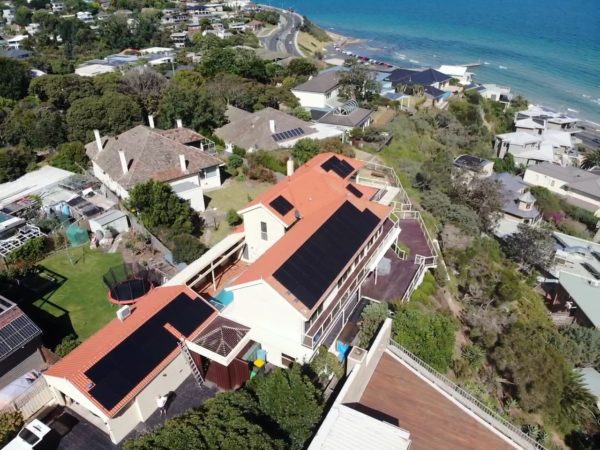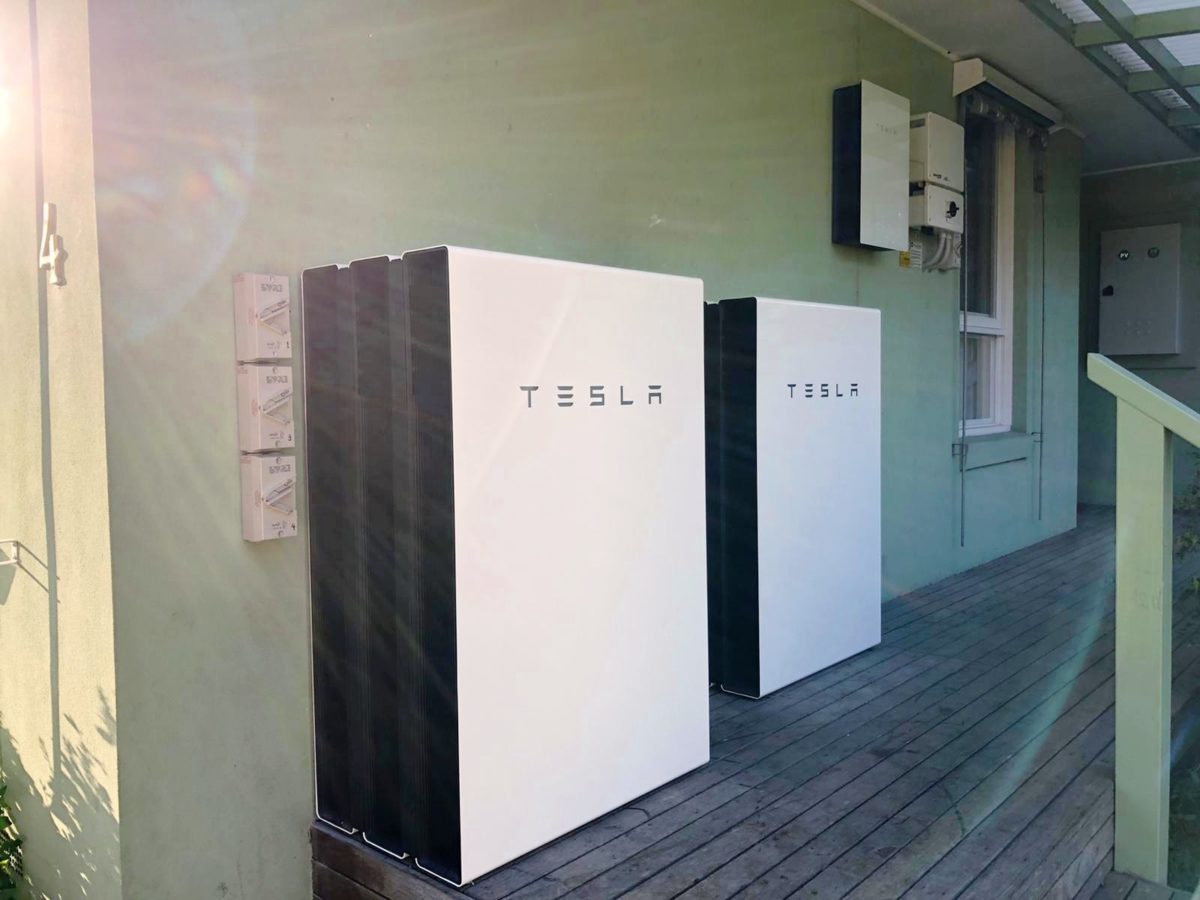Having installed hundreds of solar batteries across Australia I wanted to share my thoughts and predictions on the past, present and future of solar batteries.
The market is constantly growing, evolving, and picking up the pace. It’s really interesting to look back and see how far solar batteries have come in such a short space of time. I mean, in the last year alone we can see the jump from the Powerwall to the Powerwall 2. This jump is representative of the whole solar battery industry, demonstrating how rapidly technology is advancing, and with each advance solar batteries become more and more popular.
At the outset of 2021 we may still be in the foothills of massive solar battery uptake, but as installers we are certainly starting to feel the incline. As a solar electrician let me take you through my thoughts on the industry of solar batteries.
Current consumer demand for solar batteries in Australia
The demand for solar batteries in Australia isn’t as big as you might think. Due to their high cost, not all homeowners can afford to store their excess power using a battery. This means that most Australians are missing out on a solar battery because it may not be seen as a valuable investment. Moreover, unlike solar panels, there remains limited choices for solar batteries, and these choices all float around the same price range.
We’ve certainly found that most of the demand is for clients who have a large budget and are willing to spend the extra money without necessarily needing a quick return on investment. Homeowners who already have a solar system providing a high return on investment seem to be good candidates for solar batteries as well. There is also a high demand from regional folks with limited or intermittent access to the power grid, often due to infrastructural fragility and resultant blackouts.
On this note, the majority of solar consumers will be installing solar to reduce the cost of their energy bills and definitely taking advantage of the solar rebates that are available. This means that money is a driving force in their choice in renewable energy products. Therefore, solar batteries are still far too expensive (at the moment) to be as big as solar.
Along with the price, most homeowners actually have a small solar panel system. Their system may not actually be able to produce enough energy to fully charge a solar battery. This would mean that getting a battery could end up being an expensive mistake, taking a very long time to pay off.
A Smart Energy Council (SEC) report stated that an estimated 52,500 solar battery storage systems (off and on grid) were installed in Australia by the end of 2017. When you compare this to the potential 2 million residential homes with solar panels it seems like nothing.
Right now, most demand for solar batteries is from those who can either afford it, or desperately need it.

Image: Lightning Solar & Electrical / Facebook
The charge of change
Let’s roll the tape back a bit. From my experience solar batteries only really started to pick up in Australia from 2016 with the release of the Tesla Powerwall 2 at a good price point. After this solar batteries began to become more and more popular with homeowners.
There have been a few changes to the battery industry. The government has introduced more financial incentives for those who are looking at investing in a solar battery, and Tesla Powerwalls have had a few price changes over the past few years.
You can now receive a large rebate to help with the upfront costs of solar batteries in SA and VIC. Since 2015 it would seem that the number of solar batteries installations have tripled. It’s estimated that 70,000 battery installs may happen this year, and that Australia will take up to 30% of global demand for solar batteries.
Drivers of consumer demand for batteries
Right now the biggest driver for consumer demand for solar batteries is investing in a premium product that offers long term savings. Being able to store the energy that is produced by your solar system is extremely valuable to homeowners. This will further reduce their bills as they will be pulling less energy from the grid at high prices.
Solar batteries offer an extremely safe return on investment. They are a premium product with advanced technology to allow homeowners complete freedom of their own energy. This is exactly why people invest in solar batteries. The drive is a high-end product being able to offer them more than what standard energy prices can offer.
For some people this investment could provide a cheaper, greener future. It may even change the lives of those who are suffering from increasing electricity prices or frequent power cuts. Solar batteries offer security for your home. Just knowing that your home is safe from blackouts, and you have full control over where you are spending your electricity, is a driving force for some to make this investment.
Additionally, when batteries do start to become more affordable, the demand will certainly increase. I have absolutely no doubt about this. However, people who are choosing to wait must realise that they are missing out on huge savings. It could potentially be costing you more to wait for a decreased price than actually investing in a solar battery. Like any investment, the sooner you act the more you will save.
Another interesting driving force however, is the technology within the solar battery. For those people who have done their research into solar batteries it seems that they are more likely to invest in a higher-end battery with long warranties and advanced technology. Most people prefer to spend the extra money on a good solar battery rather than on a cheaper one that may not last as long, store as much energy, or even lose energy through its storage cycles.
Most homeowners are looking for a battery with a large storage capacity, high round trip efficiency and a long life span. This seems to be the biggest buying point for those who are interested in solar batteries. Right now, it’s pretty limited to three batteries in Australia which are Tesla’s Powerwall 2, Sonnen’s solar battery and the LG Chem. Hive battery is also a good budget option.
Potential drawbacks for installers
The biggest challenge when it comes to solar battery installation is satisfying Clean Energy Council (CEC) installation guidelines. Finding the best location to install the battery as well as ensuring all guidelines are met can prove quite a struggle.
Batteries cannot be installed if there are windows in the above clearances or if the room is habitable (e.g bedroom, living room). Batteries cannot be installed in direct sunlight either, meaning that outdoor areas can sometimes be difficult to negotiate.
Lastly, if we install a battery onto plasterboard there is a requirement to install a fireproof sheet on the wall behind the battery as well. This may or may not bother some homeowners. Overall, this is the biggest challenge for solar installers.
Apart from this, solar batteries don’t have many drawbacks for installers. The future is bright and demand is picking up.
The future of solar batteries and virtual power plants
Solar batteries have an incredibly bright future ahead of them. Both commercial, residential and solar farm batteries provide a chance for you to store cleanly generated energy. At the moment, most of this power is going to waste.
This means that investing in solar batteries is a safe, valuable investment. And yet, battery technology is still relatively nascent, meaning advances and improvements are not only coming thick and fast, but that there is also the very real potential for the kind of world breaking advances that offer something never seen before.
If we take a look at Tesla’s jump from the Powerwall to the Powerwall 2 in 2015, you can see how quickly the technology advanced while keeping roughly at the same price point. With technology advancing so quickly, there is no doubt the future of solar batteries is extremely secure.
Furthermore, governments are beginning to push solar batteries more and more. States like Victoria and South Australia are offering large subsidies to reduce the upfront investment for first time solar battery buyers. With time, I think there will be a federal incentive for homeowners to invest in a solar battery too.
And keep in mind, I’m saying all this without having yet mentioned Virtual Power Plants (VPPs), a combined source of independent power using a solar system and battery. When enough people in an area can produce their own power, VPPs offer a chance to trade your energy with others who need it. In return, when you need it most you can pull energy from others in your VPP. This results in much lower energy costs, a more environmentally friendly community and less load on the grid.
So far VPPs have proven popular among those who have solar power and battery systems. In South Australia there are several different VPP’s including Tesla and Sonnen VPPs.
Due to the massive benefits of VPPs we believe that this will be a big feature of our future. Not only do VPPs help homeowners individually, but also the whole community with lower energy prices, and the whole world with less greenhouse gases and co2 emissions. Many people are already signed up and pushing others to join a VPP – the more the merrier.
I predict within the next decade or so there will be several VPPs set up around Australia as popularity is growing. These VPP companies might offer something like a free battery/system under a contract if you sign up with them. You can then pay off your system slowly through the money that you are saving on your bills each month. It’s too early to say if this is going to happen yet but I think when it does, it will kickstart the VPP industry. Right now is a good chance to get signed up with one to start seeing immediate savings and a higher return on investment.
Author: George Panayides, Lightning Solar & Electrical
The views and opinions expressed in this article are the author’s own, and do not necessarily reflect those held by pv magazine.
This content is protected by copyright and may not be reused. If you want to cooperate with us and would like to reuse some of our content, please contact: editors@pv-magazine.com.








By submitting this form you agree to pv magazine using your data for the purposes of publishing your comment.
Your personal data will only be disclosed or otherwise transmitted to third parties for the purposes of spam filtering or if this is necessary for technical maintenance of the website. Any other transfer to third parties will not take place unless this is justified on the basis of applicable data protection regulations or if pv magazine is legally obliged to do so.
You may revoke this consent at any time with effect for the future, in which case your personal data will be deleted immediately. Otherwise, your data will be deleted if pv magazine has processed your request or the purpose of data storage is fulfilled.
Further information on data privacy can be found in our Data Protection Policy.